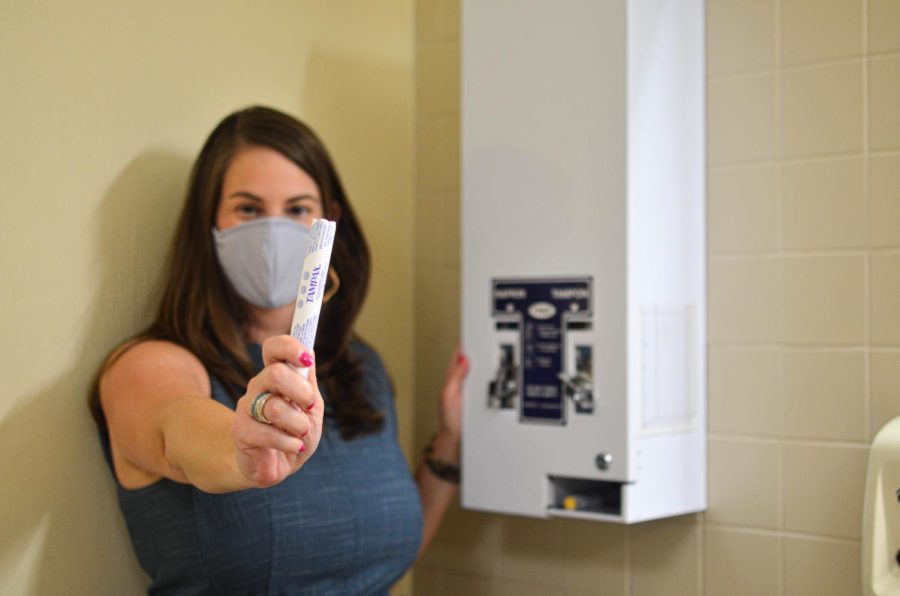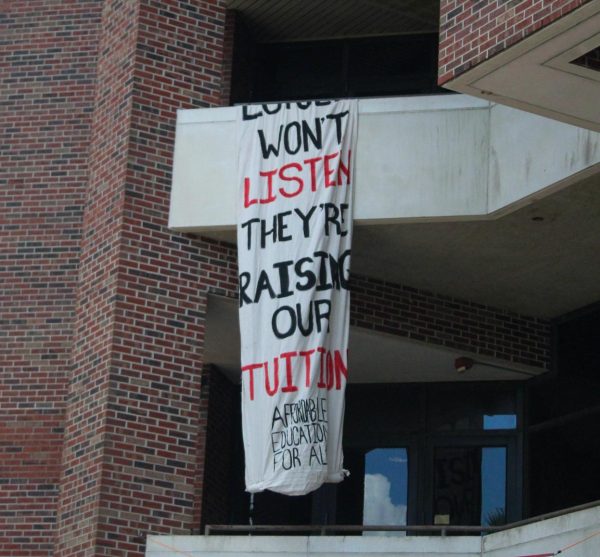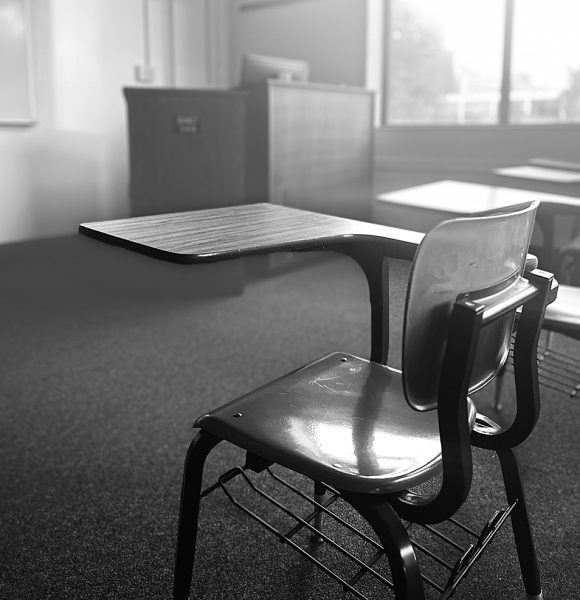College of Music and Media to provide free menstrual products
Sarah Schuler, musical theatre senior, was in rehearsal when her period came unexpectedly. With no access to menstrual products, Schuler said she turned to wadded up toilet paper to stop the bleeding.
“It’s a very embarrassing experience to have to need period products and to not be able to have access to them,” the musical theatre senior said.
Raeann Koehler, studio arts junior, said her in-class experiences without period products have also been uncomfortable.
“You have to ask multiple people and going around the room frantically making sure you are not bleeding through your pants or making a mess,” Koehler said.
For Koehler, a lack of availability of period products was not only an issue in the classroom. When she lived on campus, she said The Market in the Danna Center would occasionally run out of menstrual products, leaving her to rely on her floormates.
Assistant Journalism Professor Lisa Collins became aware of the effect the lack of access to period products had after students came into her office asking for menstrual products.
“We should just make it available so students can stay focused and not have to run home, deal with clothing issues and just be able to be focused on school,” Collins said.
Due to an effort from Collins, all of the women’s restrooms in the Communications/Music Complex have had dispensers filled with free pads and tampons since the beginning of the fall semester. These products are being paid for by the College of Music and Media, according to Collins.
While Collins said the initiative took a while to gain momentum among faculty members, she has received positive reactions from students.
“If it helps our students feel more comfortable, then we should do it. It’s just that simple,” Collins said.
Free menstrual products are also provided in some of the women’s restrooms in the Danna Center from prior student government legislation, according to Student Government Association Vice President Tyler Sanchez. Sanchez hopes to provide period products in all of the restrooms in the Danna Center.
“Not only women menstruate. Men menstruate and non-binary people menstruate, so we need to ensure that these products are accessible to all of these groups in safe and efficient manners,” Sanchez said.
During his tenure as SGA’s Chief Justice, Sanchez also expanded free menstrual products to Iggy’s Cupboard and pushed for the university to supply them in campus bathrooms.
“Sometimes people don’t have the adequate supplies to meet their medical needs, and I feel like menstrual products are definitely one of those low-hanging fruits that the university can meet to supply first,” he said.
Kedrick Perry, vice president for equity and inclusion, confirmed that the university is also planning to provide free period products. However, he did not specify when these products will be available to students and in which bathrooms. The university is currently working to determine optimal locations for these products, according to Perry.
“Unexpected situations may arise and we want students and others to know that this is one thing you won’t have to worry about,” Perry said.
SGA is planning on providing period products in the bathrooms the university will not stock due to a Court of Review initiative from last year, according to Sanchez.
Both Schuler and Koehler said they were excited to learn about the university’s efforts to provide free menstrual products.
Assistant Sociology Professor Jaita Talukdar said availability of period products on campus is reassuring.
“To be truly welcoming, to be truly inclusive, then we have to account for their basic needs,” Talukdar said.
Lack of access to period products or period poverty, the inability to buy period products, can be debilitating, Talukdar said, and affects what she calls the “mental load.” According to Talukdar, these issues primarily affect people of color.
“If you feel terrible about staining, if you feel terrible about not being able to afford tampons or other products, then that adds to your mental load in a way, which then takes away from your capacity to perform,” she said.
For college students on their periods, the mental load can translate to missing classes, the inability to complete assignments, or the discomfort of being in class, Talukdar said.
“I don’t see why institutions should not be proactive about it,” she said.

Rae Walberg is a Journalism and Spanish Junior from New Orleans, LA who is excited to serve as The Maroon’s projects editor. Outside of The Maroon, Rae...








